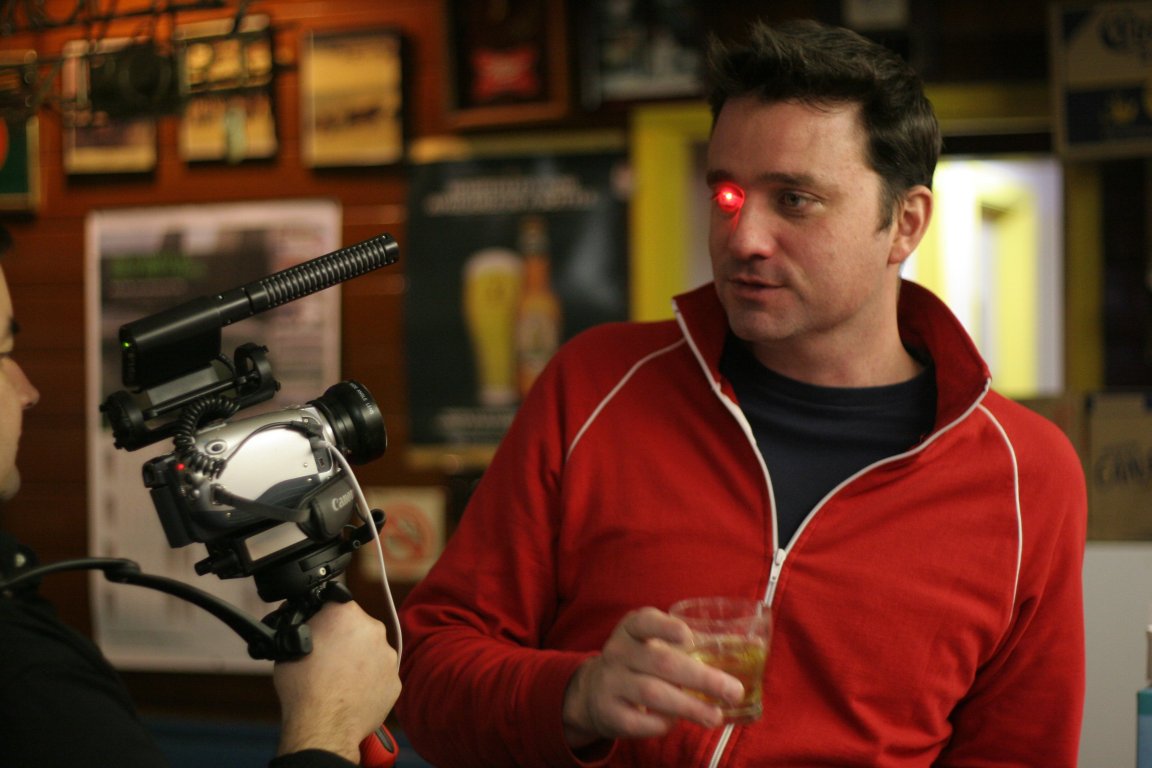
Meet the Eyeborg
While smartphone technology has already made many of us cyborg adjacent, there are some who are truly pioneering the world of the future. Take filmmaker Rob Spence of Toronto, for example. He lost his eye due to an unfortunate mishap involving his nine-year-old self, a pile of cow dung, and a shotgun. The gun kicked back after he fired it and severely damaged his eye.
While he did not lose all sight in the eye, he was declared legally blind. Years later, the eye began to physically deteriorate, prompting doctors to replace the eye. Instead of going for the traditional glass eye, Spence worked with a friend to build an eye camera. Spence’s eye can record up to 30 minutes of footage before the battery dies. The eye is not connected to the optic nerve so he cannot use it to see.
In preparation for the release of the video game sequel Deus Ex: Human Evolution, game developer Square Enix recruited the filmmaker to make a documentary of Spence interviewing other recipients of high-tech augmentation. He even included some of the eye camera footage in the doc.

The Age of Enhancement
While the word “cyborg” is still more closely aligned with science-fiction, more and more people are augmenting their bodies with technology. Many of these augmentations correct limitations, like this Star Wars inspired prosthetic arm, or these exoskeletons designed to give paralyzed people improved functionality. However, the next wave of available augmentations could focus on enhancing human capabilities, both physically and cognitively, beyond what is biologically possible. Tech wizards like Elon Musk and Bryan Johnson are working on systems that would integrate the human brain with computers, making the subject smarter.
However, each new capability could bring along specialized ethical concerns. For example, Elon Musk’s neural lace isn’t likely going to be cheap. Could giving those who can afford to purchase this technology access to higher levels of cognitive ability only lead to a massive widening of societal gaps? This and other ethical conundrums must be carefully considered as we quickly approach this Age of Enhancement.